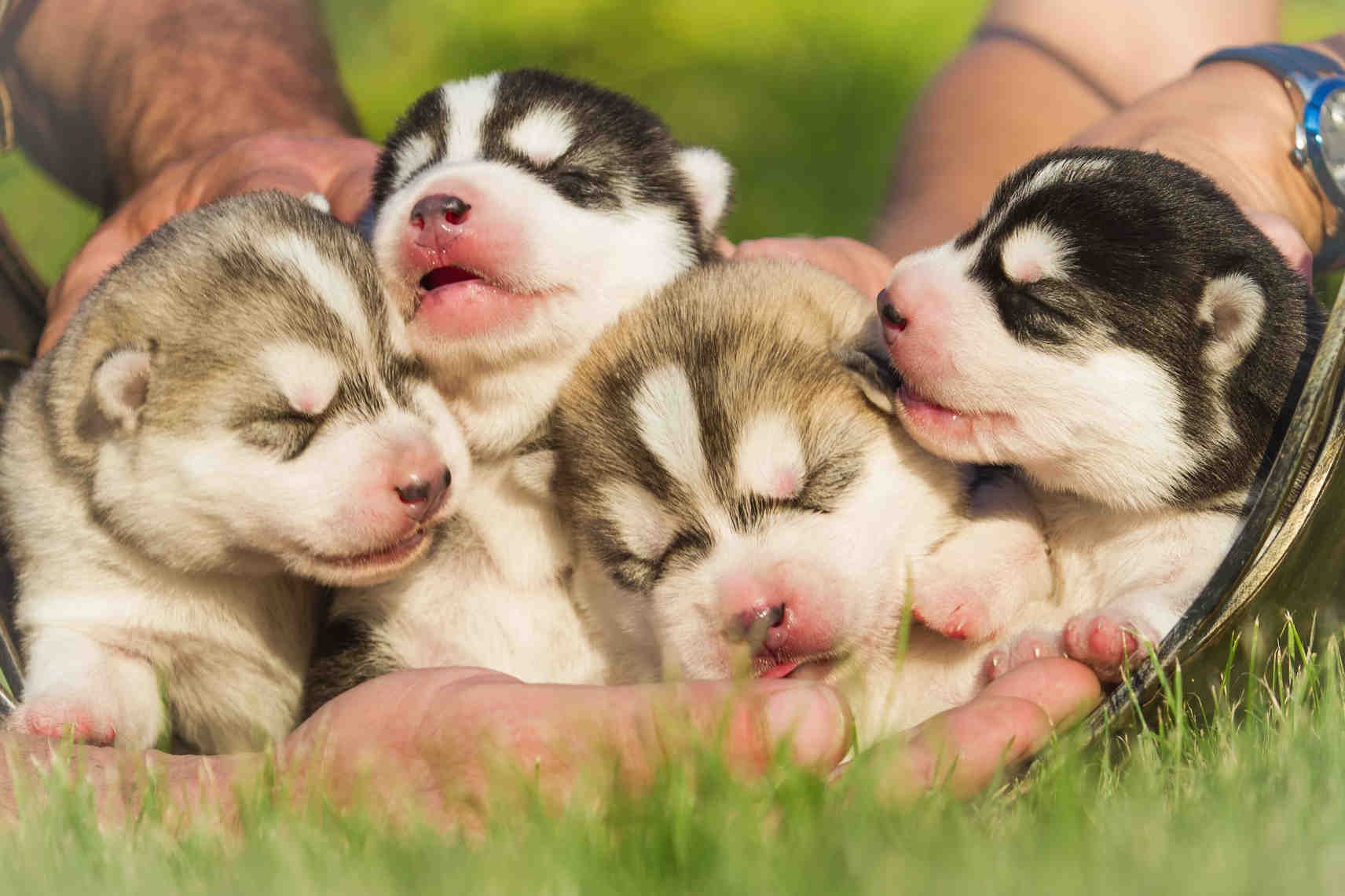Our 38 Breeder Standards
The Health and Well-being Of Our Puppies Are Our Priority

Breeder Background
• Must have a formal, ongoing relationship with an attending veterinarian, and must follow a Program of Veterinary Care (PVC).
• Breeders MUST be aware of, and in compliance with all local, state and federal licensing requirements.
Housing Facilities
• The puppies’ primary enclosure must be big enough to allow the dogs to turn around, sit, lie down and stand without any sort of physical constraint.
• The primary enclosure must provide a place for the dogs to rest and feel secure.
• Breeders are required to have contingency plans for emergency and natural disaster response that allows for a quick, safe evacuation of their dogs.
• Humidity and temperature levels must be controlled and kept in a safe range (on a breed-by-breed basis).
• Outdoor kennels and facilities must provide adequate shelter, shade, and protection from the cold and heat.
• All facilities must be cleaned daily and sanitized in consultation with a qualified veterinarian.
• No wire flooring unless wire is coated.
• Kennels should be cleaned at least once daily.
• Provide a non-stressful environment for whelping/nursing.
• Provide ample space for puppies to move alongside their littermates in the whelping area.
• The whelping area should be cleaned more frequently than the rest of the facilities, to account for extra waste from the puppies.
Adoption
• Always keep pups for as long as needed to ensure they’re placed in the right homes.
• Never allow any puppy to be adopted before it’s old enough—usually 8 weeks.
• Never deceive families of the dog/breed’s characteristics or personality.
• Always disclose known health problems before it is adopted.
• Ensure that every adopted dog is accompanied by a health certificate (with deworming and vaccination dates), sales contract, health warranty, resources covering breed-specific health issues and, if applicable, their national registry documentation.
• Always maintain thorough records of each and every litter bred.
• Offer guidance and answer questions to new owners for the entire life of the adopted dog.
• Offer assistance with rehoming of the adopted dog if the new owner is unable to keep the dog.
• Our transportation services are in compliance with applicable local, state and federal laws and regulations.
Care, Health and Wellbeing
• Dogs will always have access to clean drinking water and recognized food.
• Food given will always be appropriate for the age, breed and size of the puppies and given at correct feeding intervals to keep our dogs at a healthy weight.
• Any feeding schedule changes and questions will be addressed by the attending veterinarian.
• All puppies will have daily opportunities for exercise and play, whether that’s by access to an outdoor dog run or by following a vet-prescribed exercise plan.
• Breeders must have a written PVC developed with (and certified by) their attending veterinarian.
• All PVCs must include plans to address animal welfare and health concerns, including descriptions of parasite prevention, disease detection and treatment, breeding plans, vaccination and exam schedules, and more.
• Dogs will be groomed and bathed to ensure optimal welfare.
• All breeder facilities will have separate quarantine facilities to isolate animals with contagious diseases, in order to prevent the spread of said disease to healthy pups.
• Make sure each litter results from a careful consideration of the parents’ physical well-being and temperament, avoidance of genetic diseases, parentage, and pedigree.
• Always provide the best care, and a safe, clean environment for all dogs living in their facilities.
• Provide regular socialization, exercise, interaction and enrichment.
• Never breed a female before she is mentally and physically mature (breed-dependent), and only after a vet has examined her and declared her to be in excellent health.
• Never breed females beyond their breeding age, or to breed a dog after a vet has determined her otherwise unfit to continue breeding.
• Recommend no more than 4-6 litters per mother dog, as per veterinarian advice.
• Always ensure that puppies are examined by a licensed veterinarian, receive a clean bill of health, appropriate shots and deworming schedule before being adopted.
•Always comply with federal, state, and local regulations.
